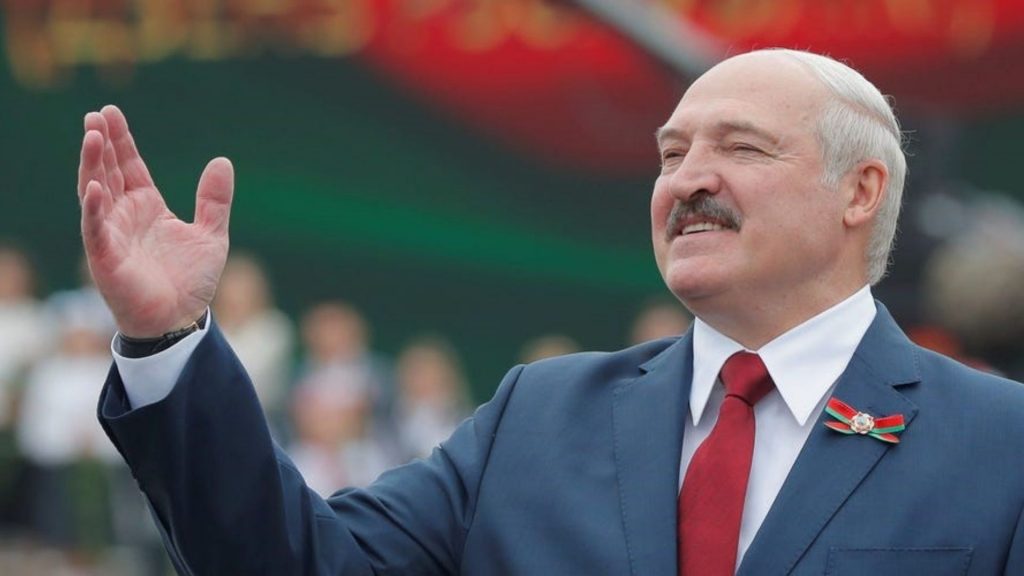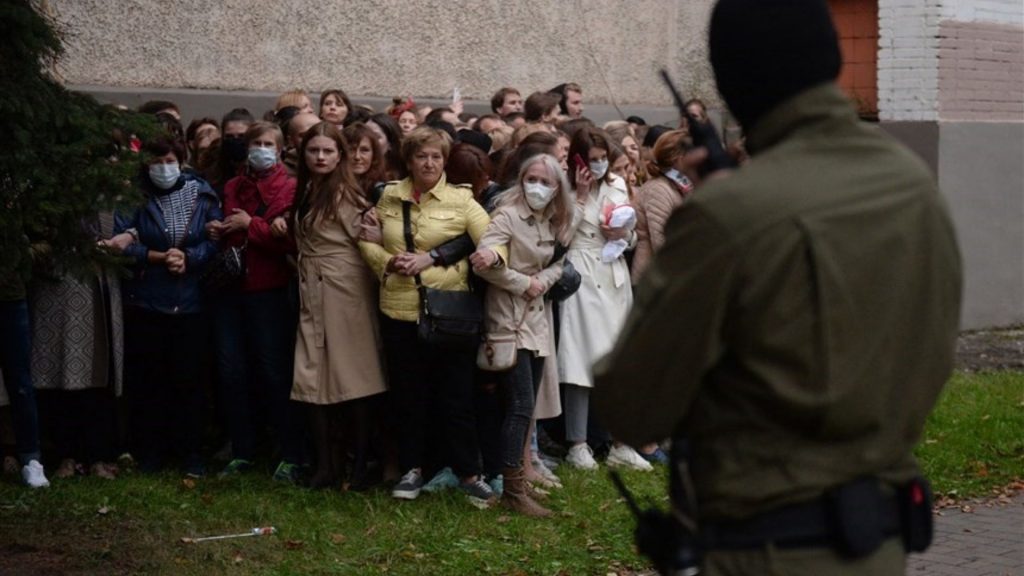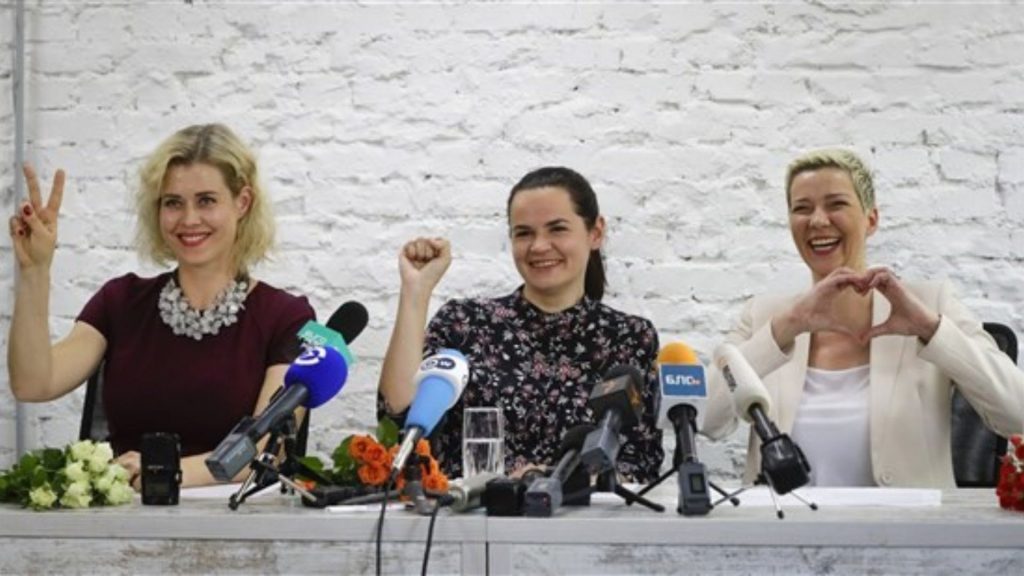Since 1994 Belarus has had a single democratically elected president. Alexander Lukashenko clinched the political power and has remained the most powerful person in his country since then. Among other post-soviet republics, Belarus has remained the most loyal to communist-style economy, most of the enterprises being state-owned. A 66-year-old „Europe’s last dictator“ was put in the center of attention after the disputed election results of 9th August. Now he is facing unprecedented pressure from the opposition and the people of Belarus, but does it really bother him? Who has the real power to oust him?

Authoritarian regimes do not espouse resistance. Almost 17 000 protesters have been detained since the demonstrations started. “We unequivocally assess the events taking place in the country after the elections as an attempt at an unconstitutional coup,” Lukashenko said. On November 12, 31-year-old Raman Bandarenka was beaten to death by the police. This has sparked further denunciation from the European Union, calling for upholding human rights and stopping violence against peaceful protesters, imposing additional sanctions against Lukashenko and his family members.
„It should be understood that the Belarusian protests are first of all ‘against’ and not ‘for’. They are against Lukashenko and for anyone. This is the mind of most Belarusians,“ a Belarusian journalist, Ales Kirkievicz, said in an interview with Euronews.
Women in White
Svetlana Tikhanovskaya, a 38-year-old human rights activist, and a leader of the opposition, with not much political experience, is seen as the winner of this election and a hope for more democratic Belarus.
What is more significant about these protests, is the exceptional female presence in the demonstrations. It has been more than 100 days since the anti-Lukashenko movement has started, but people are not backing down. Shocked by the merciless police, women dressed in white and carrying flowers have formed “solidarity chains” to stand against the government’s brutality.
The photo of women linking their arms to shield the men with their backs has become a significant symbol of the protests. Now the police do not hesitate to detain anyone who gets in front of them.

„Now it doesn’t matter whether you are a woman or man, young or old, some of them laughed in our faces when we asked them to stop and show some mercy,“ said Anastasiya Antoniuk, a 26-year-old copywriter, who is actively taking part in demonstrations against rigged elections.
The United Nations’ women’s rights committee shared a statement in September, hailing Belarusian women for their role in the political process and protests, saying „Women’s hand-holding in protest is a strong and vital symbol“.
A female led opposition of Tsepaklo, Kolensikova and Tikhanovskaya has significantly motivated Belarusian women to take a stand on political developments in their own country.

Ahead of the election, Alexander Lukashenko said the country’s constitution was “not meant” for a woman. He clarified his statement and added that “the poor things” would “collapse” under the weight of presidential duties.
„That dismissive rhetoric, that slap on the face was a real gift to the united female campaign,“ said Hanna Mirochnik, who has attended most of the protests since August.
In a country, where the whole system is subordinated to just one man, changes do not occur easily. The parliament and the judiciary are under Lukashenko’s control. Until he has the unconditional support from the police, he is safe. Even though there have been some videos circulating in the social media where army officers get rid of their uniforms to stand in solidarity with the protesters, it does not mean that security services have turned their back on the government.
Svetlana Tikhanovskaya has been maintaining that Lukashenko’s “secretive” inauguration is unlawful, thus the orders he is giving to security forces is not legitimate. This definitely has not stopped the police from using violence against demonstrators. Most of the opposition leaders have either fled the country (due to security reasons) or have been detained, which leaves the masses of protestors without a leader.
Government officials are still loyal to Lukashenko
Other than few diplomats, most of the civil servants have decided stick with the regime, refusing to switch sides. Belarusian ambassadors in Slovakia, Spain and Argentina have publicly supported the anti-Lukashenko movement. According to one of the opposition leaders, Pavel Latushko, the former ambassador to Poland and France, around 30 other diplomats of lower ranks might be dismissed soon because of their disagreement with the election results and ongoing violence against demonstrators.
Support from Kremlin
Lukashenko’s attitude towards Russia is one of a kind. In 2008, when Putin pressured Belarusian leader to declare independence of occupied Abkhazia and South Ossetia, Lukashenko did not obey him. He sought Western engagement to stand against Russian influence. In 2011, when Belarus was faced with severe economic crisis, due to president’s financial mismanagement, Lukashenko turned to Russia for help. Such relationship between Russia and Belarus has been going on for decades now.
It is also no secret that Vladimir Putin has „personal distaste for Lukashenko, but he has no interest in seeing a popular revolution overthrow of a longtime authoritarian leader“.
But, for now, Putin seems the only person from whom Lukashenko can get help from. Earlier in August, Russian president deployed a reserve of security forces on the border of Belarus to support Lukashenko in case the situation gets out of control.
A month later, Putin pledged 1.5 billion loan during the meeting in Sochi, where two leaders met. They also confirmed that both countries would continue joint military drills. Putin further voiced his support to constitutional changes in Belarus, which has caused massive dissatisfaction among Belarusians. This meeting, once again, reified Moscow’s willingness to support Minsk.
Despite Kremlin’s backing and Lukashenko’s resistance to transfer power to the opposition, he has lost social legitimacy and the trust of Belarusian people, which might lead to the end of his decades long dictatorship.
